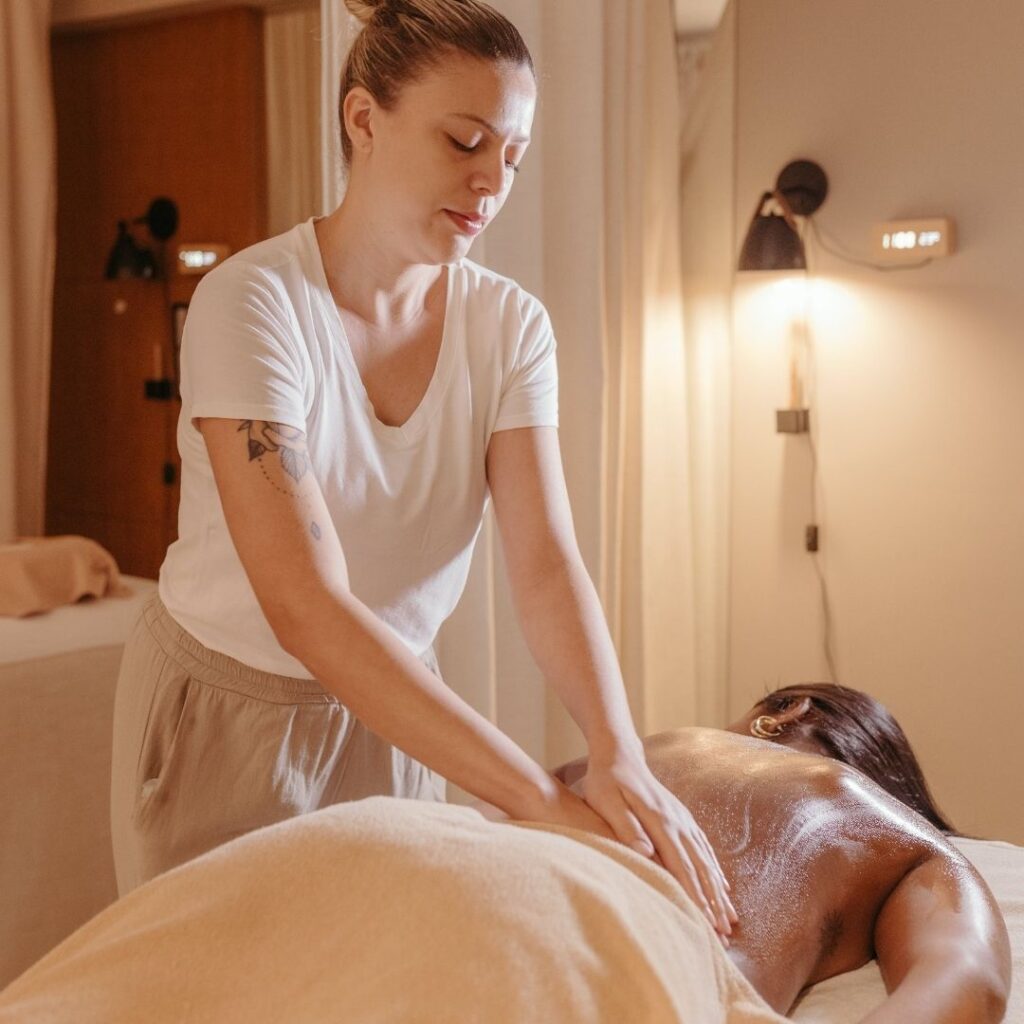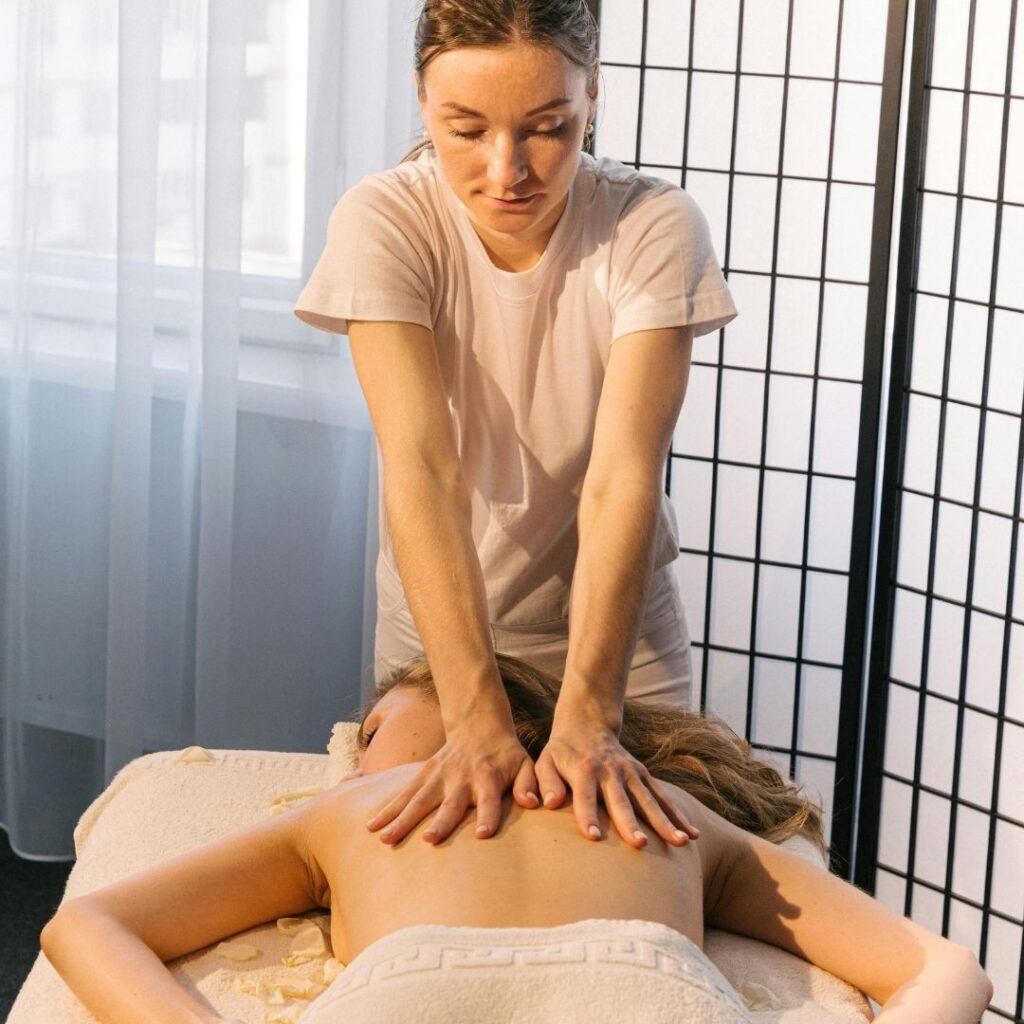A great Thai massage therapist is more than someone who knows techniques—they embody a deep respect for tradition, an intuitive sense of healing, and a commitment to continuous learning.
At Nuad Thai School in Bangkok, we help students become not just technically skilled, but also professionally and spiritually prepared to share the healing art of Thai massage. In this article, we explore the qualities that define outstanding practitioners, drawing from our experience in training students from around the world.
Mastery of Traditional Techniques
Thai massage has been passed down through generations, blending Ayurvedic principles, acupressure, and yoga-like stretching. A top therapist must develop deep knowledge of these techniques and their applications. At Nuad Thai School, our hands-on training ensures that students learn the correct pressure, rhythm, and posture to provide a safe and effective experience for clients.
Technical proficiency isn’t just about memorizing movements. It requires understanding the body’s energy lines (Sen Sib), developing muscle memory through practice, and adjusting techniques to suit individual client needs. Only with rigorous training and repetition can students become confident, adaptable therapists.

Cultural Understanding and Respect
Thai massage is rooted in Thai culture and spirituality. Practitioners traditionally begin with a prayer to Dr. Shivago Komarpaj, the legendary founder of Thai massage. This act of reverence reflects the spiritual grounding of the practice.
A great therapist recognizes the cultural context of their work. At Nuad Thai School, we incorporate cultural immersion into our courses. Students learn the history, rituals, and ethics associated with Thai massage, helping them practice with authenticity and integrity.
Strong Communication Skills
Listening is a vital trait for a Thai massage therapist. Effective communication with clients about their needs, comfort levels, and any physical issues is key to delivering a safe session that maximizes the therapeutic benefits of each treatment.
Therapists must also explain what to expect during a treatment, especially to clients new to Thai massage. Clear communication helps build trust and sets the stage for a therapeutic connection. At Nuad Thai School, we teach our students how to engage with clients professionally and compassionately.
Physical Endurance and Body Awareness
Thai massage is physically demanding. It often involves kneeling, stretching, lifting, and using body weight to apply pressure. Therapists must maintain good posture and use proper body mechanics to avoid injury and provide consistent pressure throughout a session.
We train our students to be aware of their own bodies while working with others. This self-awareness not only protects the therapist but also enhances the flow and effectiveness of each session. Our instructors emphasize proper breathing, posture, and energy flow during training.
Empathy and Intuition
Beyond technique, great therapists bring empathy and intuition to their practice. They can sense when a client is in discomfort, emotionally distressed, or in need of extra care. This sensitivity allows therapists to tailor sessions for maximum therapeutic benefit.
Empathy also helps build rapport. Clients are more likely to return to a therapist who makes them feel heard, respected, and genuinely cared for. At Nuad Thai School, we foster this emotional intelligence in our training, encouraging students to see massage as a holistic, healing experience.

Commitment to Ongoing Learning
The field of wellness is ever-evolving. Great therapists stay updated on new techniques, therapeutic approaches, and best practices. Lifelong learning ensures that practitioners continue to improve and serve their clients effectively.
At Nuad Thai School, we offer advanced courses and continuing education for graduates. This ongoing development helps our alumni stay at the forefront of Thai massage practice, adapting their skills to a global clientele and diverse needs.
Professionalism and Ethics
Trust is crucial in the therapist-client relationship. Maintaining boundaries, punctuality, hygiene, and confidentiality are all part of a therapist’s professional duty—especially important for building confidence with beginner’s clients who may be new to Thai massage.
We instill strong ethical values in our students from day one. Whether they go on to work in spas, open their own practice, or teach others, our graduates carry with them the values of respect, discipline, and responsibility.
Conclusion
Becoming a great Thai massage therapist takes more than learning techniques. It requires cultural understanding, physical endurance, empathy, and a lifelong commitment to growth. At Nuad Thai School, we cultivate these qualities in our students, preparing them to become outstanding healers and ambassadors of Thai wellness traditions. Whether you are starting your journey or looking to deepen your practice, we are here to support your path to excellence.

